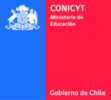
March 1-2, 2018
Faculty of Engineering
University of Concepción
Contact: guillecabrera@udec.cl





During the last couple of years data coming from astronomical instruments has grown from giga to petabytes. As an example, the Large Synoptic Survey Telescope (LSST) will produce approximately 15 terabytes of raw data per night, and about 60 petabytes over its ten years of operation. This poses the challenge of developing new data processing tools to address the astronomical data deluge.
The aim of the workshop is to bring together data scientists working on big data astronomy problems. All topics related to big data Astronomy are welcome including machine learning for Astronomy, pipeline development, astrostatistics, astronomical databases, and astronomical data orchestration among others.
Organizing Committee
Guillermo Cabrera-Vives (UdeC)
Pablo Estévez (U. Chile)
Pierluigi Cerulo (UdeC)
LOCATION
Faculty of Engineering, University of Concepción
Edmundo Larenas 219
Auditorium 105, 1st floor.
PROGRAM
THURSDAY MARCH 1
11:30 Welcome
12:00 The Astronomy Department at University of Concepción and stellar variability in the LSST
Ronald Mennickent
12:30 Deep Learning in Astronomy
Guillermo Cabrera-Vives
13:00 Lunch
14:45 Extragalactic distance scale based on the Tip of the Red Giant Branch
Marek Gorski
15:10 Colours and Stellar Population Properties of Brightest Cluster Galaxies at Redshifts z < 0.4 in the Sloan Digital Sky Survey
Pierluigi Cerulo
15:35 The zoology of galaxy morphologies and the need for automatic classification
Monserrat Martínez
15:45 Morphological prediction of galaxies with neural networks
Manuel Pérez
16:00 Coffee break
17:00 Discussion: Big-Data Astronomy and the opportunities for the Chilean community
Pablo Estévez, Francisco Förster, Neil Nagar
FRIDAY MARCH 2
9:30 The APOGEE survey
Sandro Villanova
9:55 ALeRCE, a Chilean astronomical alert broker
Francisco Förster
10:20 Robust Period Estimation using Mutual Information for Multi-band Light Curves
Pablo Huijse
10:45 Coffee Break
11:30 KBMOD: Detecting Solar System objects below the single-image noise floor
Hayden Smotherman
11:50 Analysis of neural networks with mutual information
Ignacio Reyes
12:10 Photometric supernovae classification using deep recurrent neural network
Cristobal Donoso
12:20 Deep Learning for Image Sequence Classification of Astronomical Events
Rodrigo Carrasco
12:40 Final remarks